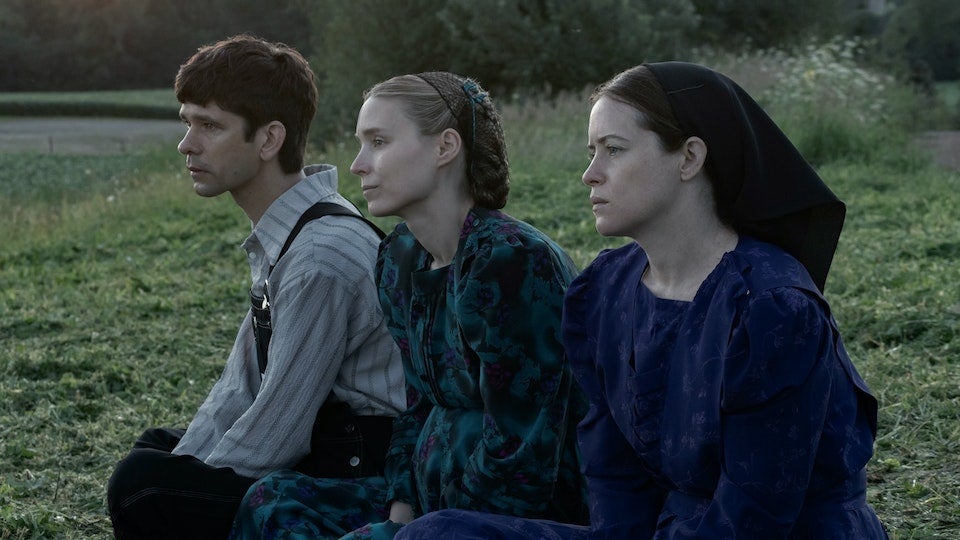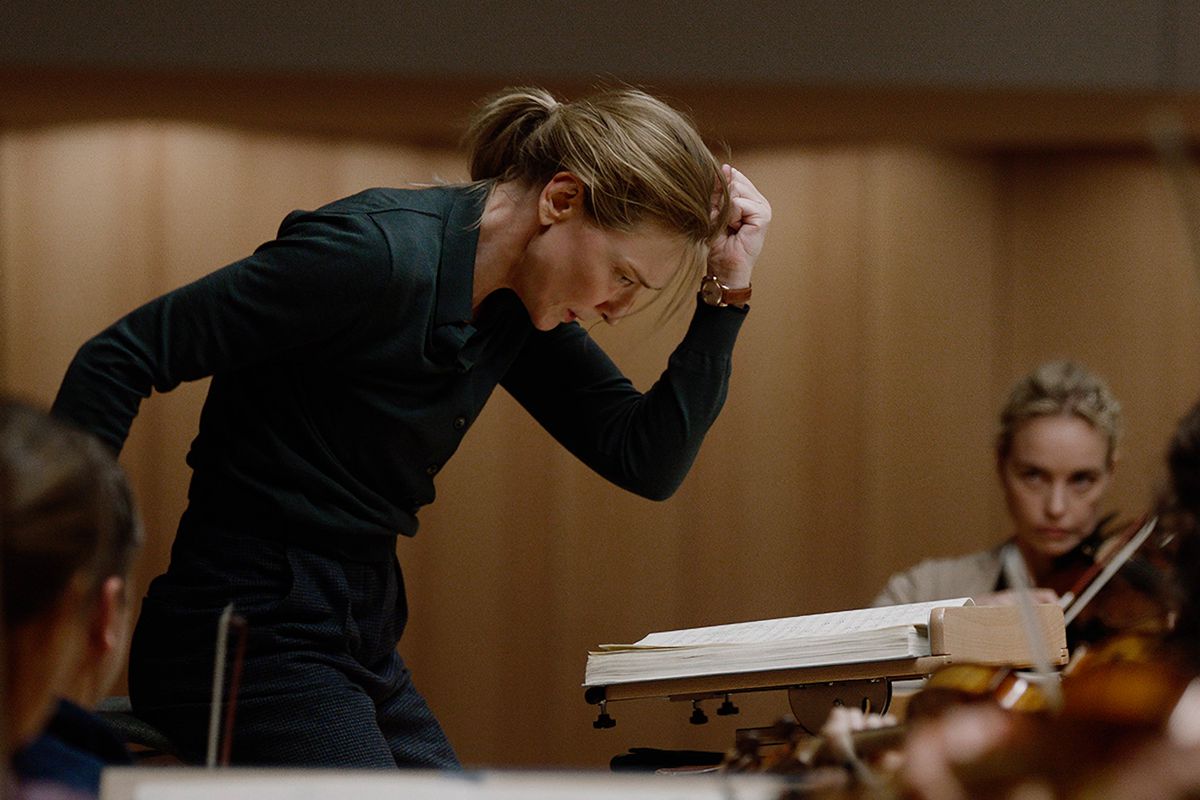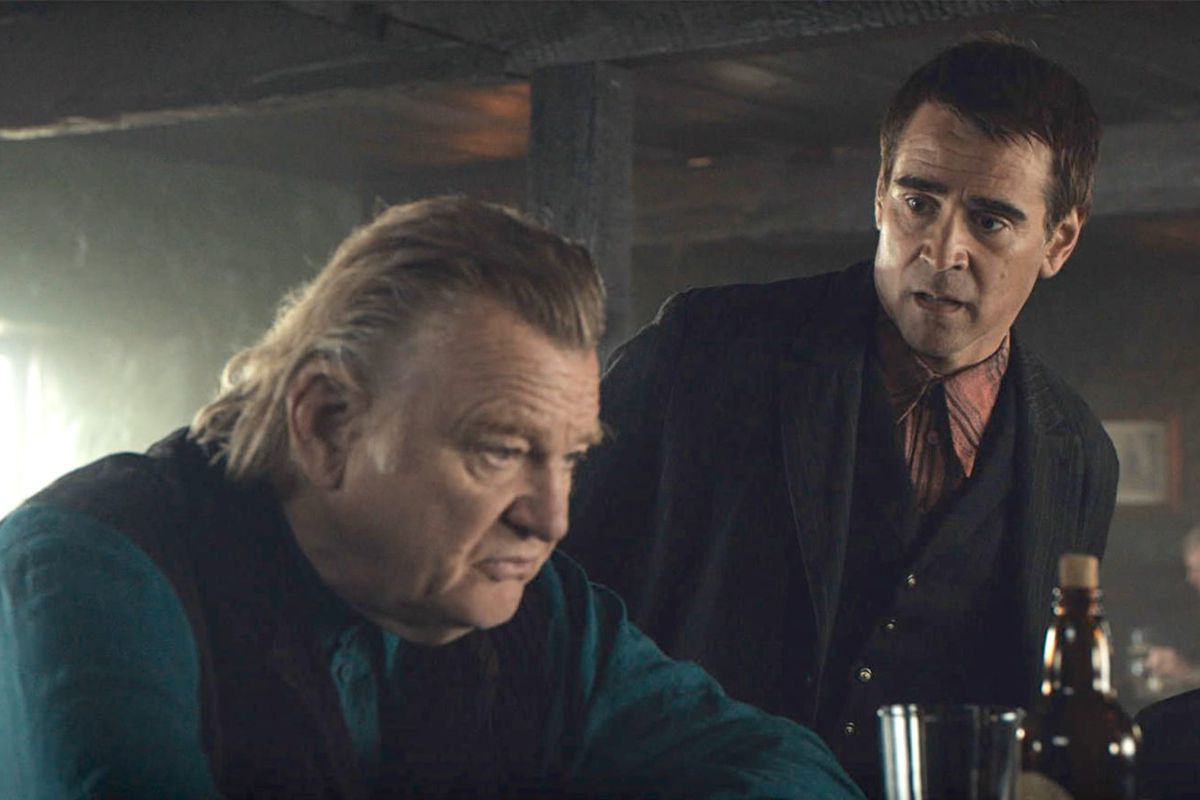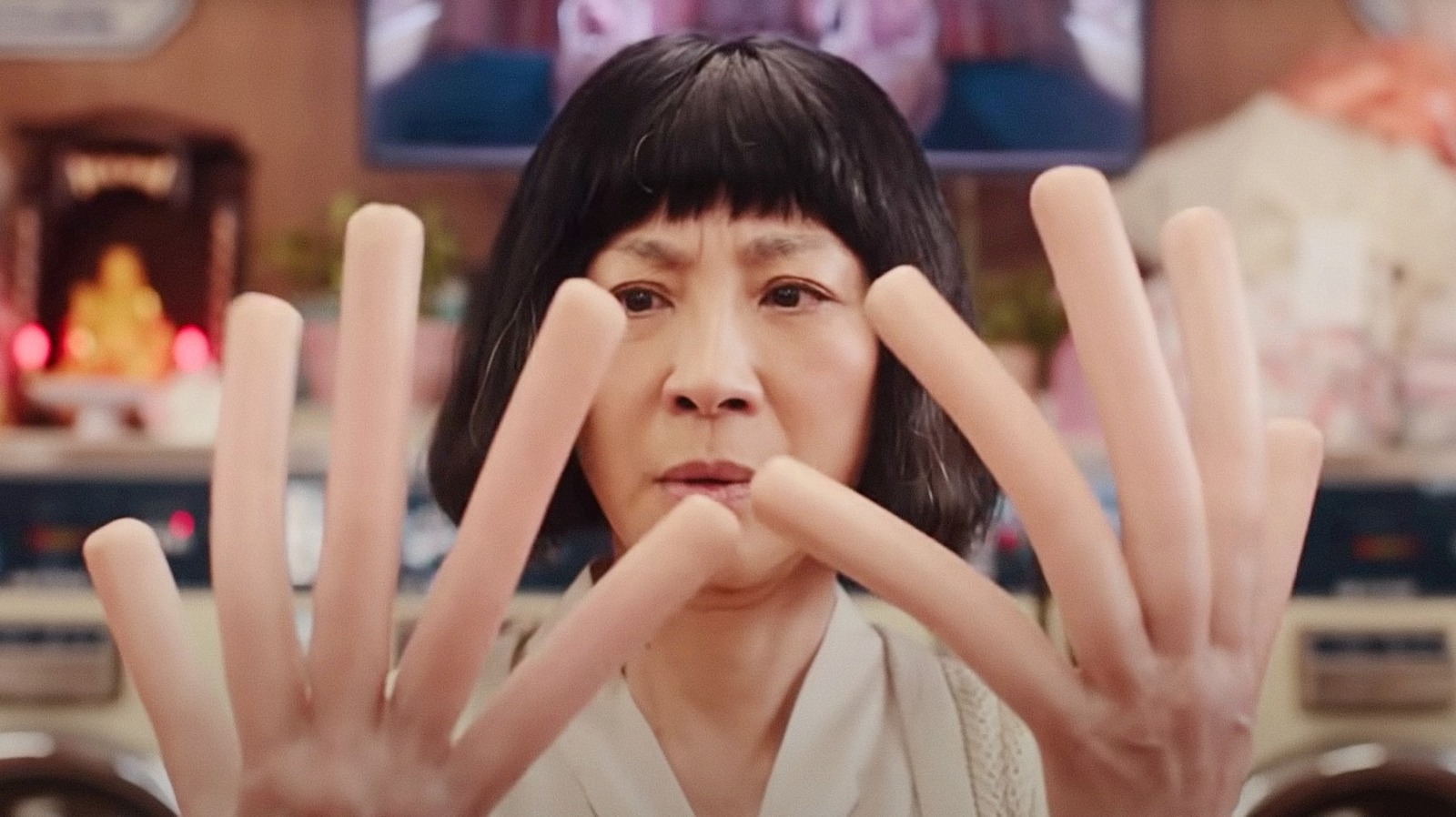5. Women Talking

That Sarah Polley’s bracingly feminist, dialogue-driven drama (deservingly) managed to score a Best Picture nomination suggests the most Pyrrhic of victories given the lack of female representation in the directing field.
Faithfully adapted from Miriam Toews’ 2018 novel of the same name, “Women Talking” tears at the very fabric of patriarchy, grappling with ideas about abuse, trauma and collective action all worth confronting in the era of the #MeToo movement. Unfolding largely in a stagey, single location à la “12 Angry Men”, the story centers around a group of surviving women who were drugged and abused on a regular basis in a religious colony and secretly gather to discuss their shared trauma and decide whether to stay with their male terrorizers or leave the only home they’ve ever known. At once deliberately grim and surprisingly hopeful, “Women Talking” clings to the mind, and many of its sharp observations will linger with you for long after the credits roll.
4. Triangle of Sadness

Class satires in the same ballpark as “Triangle of Sadness” were a dime a dozen last year, with many high-profile releases from “Glass Onion” to “The Menu” pulling no punches in radical assaults on the 1 percent. No director, however, did it with such gusto as Swedish provocateur Ruben Östlund, whose Palme-winning takedown of the upper class scored big at Cannes and made audiences wince and gasp at the big screen more than any other in 2022.
Lacing its satirical jabs on a coterie of uber-rich yacht passengers, including social- media influencers, a perma-drunk Russian oligarch and the boat’s Marxist captain, “Triangle of Sadness” is best described as “Parasite” by way of Luis Buñuel; a not-so-subtle schadenfreude peppered with riotously funny commentary, stomach-turning scenes, and unexpected turns. The film managed to snag three nominations, including Best Director and Best Original Screenplay, which means it’s still on track to become only the third Palme d’Or winner to repeat at the Oscars.
3. Tár

Barring a late surge by Michelle Yeoh, all signs point to Cate Blanchett becoming only the fifth actress ever to win three Academy Awards in the upcoming March 12 ceremony. If not to just wax poetic on her celebrated career and staggering accolade haul, one has to admire the way she seamlessly disappears in her roles.
The most telling indicator of Blanchett’s spellbinding turn as the titular Lydia Tár—a fictional orchestra conductor who plunges into a career-ending downward spiral—might very well be the fact that audiences found it so utterly convincing they mistook her character as a real person. Granted, Todd Field’s enthralling meditation on power, abuse, and today’s cancel culture may not be based on true events, but its core message reaches far beneath its make-believe surface. Paradoxically, what “Tár” gains in ambiguity—essentially allowing each viewer to draw their own conclusions—might hurt its chances of coming out on top in the preferential ballot when put alongside crowd-pleasers with broader appeal.
2. The Banshees of Inisherin

As the ongoing feud between two lifelong friends on a remote island off the coast of Ireland is driven to a point of no-return, one begins to realize just how deep Martin McDonagh is prepared to burrow into the emotional fault lines running beneath everyday lives in his Civil War-era tragicomedy.
In reuniting with his two “In Bruges” muses Colin Farrell and Brendan Gleeson (both of whom were acknowledged by the Academy for their outstanding performances), McDonagh delivered his finest script to date. Though the crumbling friendship and never-ending dispute between brooding fiddle player Colm and his former pal Pádraic might not seem like hair-raising stuff, rest assured, “The Banshees of Inisherin” will give you plenty of bang (and severed limbs) for your buck. The film’s poignant exploration of mortality and alienation, deceptively delivered under the guise of a farcical comedy, might not be everyone’s cup of tea, but the Best Picture race is still widely seen as a toss-up between “Banshees” and the Daniels’ zany family drama.
1. Everything Everywhere All at Once

By now, A24’s multidimensional kung fu splatter extravaganza has come full circle as a bona fide zeitgeist phenomenon: the more attention and popular acclaim it got, the more critics raged about its overstuffed premise, not to mention how insufferable their diehard fans tend to be—only for the film to steamroll its way through awards season with a pack-leading 11 nominations.
It is a pleasant surprise to see the Academy’s old guard finally warm up to the type of populist, goofy blockbuster that would have been laughed off a few editions back—let alone considered as a serious Oscar player at this stage. But it’s worth mentioning that “Everything Everywhere All at Once” is unlike any Best Picture frontrunner before it. What kicks off as a family drama about a Chinese laundromat owner fending off the IRS and reconnecting with her daughter curdles into a multiverse-spanning epic about hot-dog fingers, googly-eyed rocks, and Ratatouille spoofs. But at its heart, it’s the film’s earnest and gripping emotional hook that resonated with moviegoers across the globe and might ultimately appeal to voters this Oscar race.